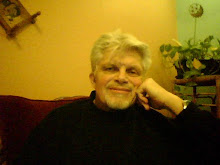“Do you believe in the resurrection?” He asked me.
“That’s where I put my hope.” I replied.
“Then you’re an idiot.”
“Ok, I’ll agree that I’m and idiot, but what does that have to do with the resurrection?”
“Everything. You just told me that you center your life on something that you just hope is true. That’s why you’re an idiot.”
“No, I said the resurrection is something in which I put my hope. I’m an idiot for other reasons.”
“All the evidence is stacked against you, you know. Get your head out of the sand.”
“What evidence?”
“Well, ALL the evidence. For starters, scientists say it’s impossible.”
“No they don’t. They just admit that there’s nothing within the scope of their knowledge of the world that could explain or duplicate such a thing - with the exception of Barry Manilow’s renewed popularity, of course. Resurrection hope has nothing to fear from scientific inquiry.”
“Ok, then there are the historians. They haven’t found proof either.”
“I hope they don’t give up looking.”
“They’ve pretty much debunked much of what your Bible says about it. They’ve raised serious questions about its authorship, later additions, and suspicious political motives in forming the cannon that bring the whole book under a cloud of suspicion.”
“Good historical research and scholarship, both secular and sacred, seek truth and resurrection hope does not fear truth.”
“But the Bible….”
“Sorry to interrupt, but I haven’t put my hope in the Bible. I’ve put my hope in a resurrected Christ, which predates its written accounts by close to a half a century.”
“Even so, I hear that more and more theologians are beginning to move the story of the resurrection into the category of myth or metaphor. They say that the whole doctrine of the resurrection may be just a story that illustrates deeper truths about God and God’s love for humanity. Have you heard about that?”
“Yes, very interesting reading.”
“So why do you stubbornly cling to your old myths about the resurrection, your dogma and creeds that insist you believe the ridiculous? How can you insist on the belief that Jesus conquered death, when death is all around us?”
“Oh, now I see. You think I said I put my hope in the doctrine of the resurrection? You think I’m being loyal to creeds and dogma? You think I am blind to all the evidence around me that shouts down naive beliefs such as the one that Jesus was resurrected?”
“I couldn’t have said it better. That’s exactly what I am saying. That’s why I say you’re an idiot”
“You asked if I believed in the resurrection. I said it was where I placed my hope, yet you continue to talk about my belief as though it’s the source of my hope. I haven’t put my hope in a belief, creed, dogma, doctrine or any theological structure. My hope rests in the experience of Christ in me – the Divine presence – the inner Light. Further, my hope is not some sentimental attachment to a past event, nor is it rooted in belief in life after death. It’s a response to what God is doing now. My hope is to be a person who loves unconditionally, as only God can love. My hope is that the presence of the living Christ in me will transform me into a person of moral vision and heroic faith. My hope is that the Light will open my eyes to systems of evil from which I benefit and in which I may be inadvertently participating. My hope is that I can partner with God in the creation of something beautiful – God’s Kingdom on earth. My hope is to be a reconciler, a healer, a peacemaker, and a person of grace, mercy, and forgiveness. And it’s not just me; I’m part of a faith community that longs for these same things.”
“OK, so explain how the resurrection leads to such hope…I don’t get the connection.”
“The Easter story is a story of hope and life coming out of ashes. It’s the story of evil being redeemed to play a role in God’s mission. It’s a story of immeasurable love, supreme sacrifice, and profound forgiveness. It’s a story that goes beyond itself so that even the cross, with all its cruelty, now hangs around our necks as a symbol of life. Easter is not just a thing in itself; it is a never-ending event that is as fresh and powerful today as it was two thousand years ago. Easter is always happening, everywhere, all the time. The resurrection is, not was. Easter proclaims that God is Love is God is Love is God is Love is God…and so on forever”
“Doesn’t that then, show that the resurrection story is just a myth or a metaphor?”
“A myth is a fiction meant to convey a truth, and a metaphor just represents a truth, but is not the truth itself. The resurrection is neither. It is mystical, but not mythical. It is not a metaphor pointing elsewhere, it is self-revealing and, as such, both points to truth and IS the truth. It is truth in the same way that Jesus is the truth. My hope rests firmly in that truth, though I understand neither its depth, height, nor its various manifestations. I’ve staked my life on the resurrection and am witness to its reconciling power even among those who have never heard the Easter story. Many of these other things make up my belief as well, but my hope rests on this one thing.”
“Ok, then. Your answer is that you DO believe in the resurrection?”
“That’s where I put my hope.”
